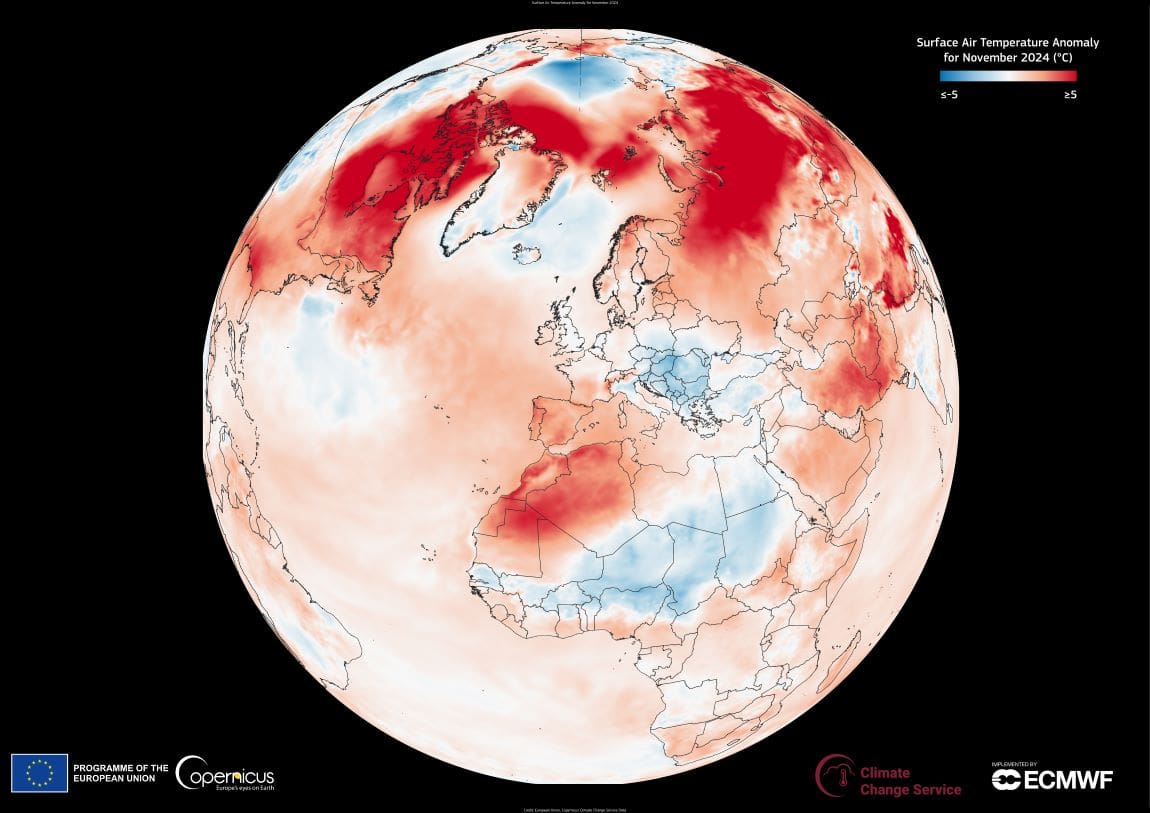The Copernicus Climate Change Service (C3S) has reported that November 2024 was the second-warmest November on record globally, with an average surface air temperature of 14.10°C.
This figure is 0.73°C above the 1991-2020 average, surpassed only by November 2023. The first eleven months of 2024 also mark the warmest January-to-November period in recorded history, with a global-average temperature anomaly of 0.72°C above the 1991-2020 baseline, outpacing the same period in 2023 by 0.14°C.

C3S data indicates a virtually certain likelihood that 2024 will become the warmest year on record, exceeding the 1.5°C threshold above pre-industrial levels. This milestone underlines the urgency of addressing climate change through informed global strategies.
The C3S visualization highlights significant surface air temperature anomalies in November 2024 across Europe, Africa, the Americas, and Asia, showcasing the widespread impact of rising global temperatures.
Such detailed analyses from C3S are instrumental for policymakers and stakeholders, providing actionable insights to guide climate adaptation and mitigation measures.
More information is available here.
Featured image credit: European Union, Copernicus Climate Change Service Data




